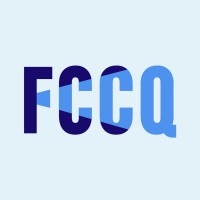
Open
Workforce Training Measure (MFOR)
Last Update: February 10, 2026
QC, Canada
Workforce Development Program Supporting Employee Training in Québec
Grant and Funding
At a glance
Funding available
Financing goals
Improve employee retention
Develop employee skills
Increase IT security
Eligible Funding
- Maximum amount : 100,000 $
- Up to 75% of project cost
Timeline
- Unspecified
Eligible candidates
Eligible Industries
- All industries
Location
- Quebec
Legal structures
- Non-profit
- Public or Parapublic institution
- For-profit business
- Sole proprietorship
- Non-financial cooperative
Annual revenue
- All revenue ranges
Organisation size
- All organization sizes
Audience
- Language Minorities
Non-profit candidates
Sector of operation
- Economic, Social and Community Development
- Employment and Training
Target groups
- Indigenous peoples
- New immigrants & refugees
- People with disabilities
- Business owners / entrepreneurs
Revenue structures
- All structures
Scope
- Local
- Regional
- Provincial
- National
Overview
This program supports employee skills development through financial and technical assistance for private and not-for-profit companies in Quebec, excluding public and political entities. It finances training in new technologies, literacy and more, covering the costs of trainers and teaching materials.
Activities funded
- Literacy training (including foundational literacy, numeracy, and digital literacy).
- Language training in languages other than French required for employment.
- General training (prerequisites for vocational or technical training) and basic training.
- Vocational, technical, college, and university training aimed at developing professional skills.
- Training to develop generic competencies such as teamwork, problem-solving, information technologies, and interpersonal communication.
- Trainer training to enable employees to acquire pedagogical skills for internal knowledge transfer.
- Management training to improve human resources management and support workforce competitiveness.
- Training related to the introduction of new equipment or new technology to increase productivity.
- Training delivered outside production (off-the-job training).
- On-the-job task training for acquiring new skills specific to new responsibilities.
- Other pedagogical methods, including classroom training, remote learning (synchronous/asynchronous online training), and blended learning formats, provided that assessment and validation of learning outcomes are ensured.
- Training offered outside Quebec when it is demonstrated to be necessary and without alternative within the province.
Examples of admissible projects:
$ 12,000
Upgrade accounting team's skills for new financial software
$ 16,000
Provide vocational training for unemployed youth
$ 13,000
Deliver photography workshops and skills assessment for youth
$ 13,000
Introduce digital marketing training for new employees
$ 16,000
Enhance technical skills of software developers with advanced AI training
$ 12,000
Develop a literacy program for immigrant workers
Eligibility
- The applicant must be a private for-profit enterprise, a group of private for-profit enterprises, a municipal administration, an Indigenous community or band council, a non-profit organization, a cooperative, a self-employed worker, or a group of self-employed workers.
- The applicant organization must hold a valid Quebec Enterprise Number (NEQ).
- The supported project must involve workforce training to enhance the competencies of employees in employment positions related to the needs of the business or the labor market.
- Eligible projects require a detailed training plan demonstrating how the training supports skill development and workforce retention.
- Training must primarily be offered in French, except for specific circumstances described by the program guidelines.
- Employees eligible for training must meet the general eligibility requirements for employment assistance measures.
- Telecommuting employees are eligible if they reside in Quebec and are employed by a Quebec-based enterprise conducting its main economic and decision-making activities from Quebec.
Who is eligible?
- Private for-profit companies
- Groups of private for-profit companies
- Municipal administrations
- Indigenous communities and band councils
- Non-profit organizations
- Cooperatives
- Self-employed workers
- Groups of self-employed workers
Who is not eligible
- Municipal and paramunicipal administrations (e.g., cities, municipalities, MRC, economic development corporations, public transportation agencies).
- Provincial and federal parapublic organizations (e.g., Investissement Québec, Hydro-Québec, SEPAQ, SADC/CAE, Parks Canada, etc.).
- Private and public training institutions (e.g., school service centers, schools, colleges, universities).
- Health and social services institutions (e.g., CIUSSS, CISSS, CHSLD, GMF, and other entities in the health and social services network).
- Ministries and agencies of the Government of Quebec subject to Chapter III of the Loi sur l'administration publique and whose personnel is appointed pursuant to the Loi sur la fonction publique du Québec.
- Ministries and agencies of the federal government subject to the Public Service Employment Act.
- Political parties or associations.
- Organizations listed as ineligible for public contracts in the Registraire des entreprises (RENA).
- Companies with unresolved debts to the Ministry, except under a written repayment agreement.
- Applicants who have failed to meet their obligations with the Ministry after formal notice regarding a previous grant.
- Companies engaged in controversial activities where association with the Ministry would be unreasonable (e.g., recreational cannabis).
- Companies whose activities are halted due to a strike or lockout.
- Companies subject to francization obligations under the Charter of the French Language that do not comply with the related requirements.
Eligible expenses
- Analysis of training needs
- Skills assessment
- Development and adaptation of training content
- Purchase of training
- Development, adaptation, purchase, and rental of educational and didactic material
- Evaluation tools
- Salaries or fees of trainers
- Indirect costs for trainers (travel, meals, accommodation, etc.)
- Salaries of workers during training (excluding benefits, commissions, or other forms of remuneration)
- Indirect costs for workers in training (travel, meals, accommodation, etc.)
- Management, administrative, and project implementation expenses incurred by a delegated organization or group of companies, up to 10% of eligible costs (e.g., banking fees, necessary supplies, costs for access to a delivery platform, etc.)
- General expenses for persons with disabilities
- Non-recoverable portion of taxes for non-profit organizations (NPOs)
Ineligible Costs and Activities
- Wages of the company’s own staff assigned to managing the training plan.
- Employee benefits portion (when employee wages are included as an eligible expense).
- Orientation/welcome activities, conferences, congresses, and seminars.
- Podcasts (“balados”).
- French-language training (“francisation”).
Eligible geographic areas
- Companies located in Quebec.
Selection criteria
- Impact on the retention of workers in employment.
- Alignment with the strategic objectives of the company and identification of areas requiring improvement.
- Analysis and justification of the company’s training needs.
- Establishment of priorities for training initiatives.
- Development and organization of training activities, including a detailed training plan outlining: targeted positions, identification of employees, training objectives and expected results, activities, duration, schedule, pedagogical framework, costs, attestation of training, and follow-up/evaluation methods.
- Justification of the chosen trainer and assurance of no conflict of interest.
- Potential to enhance employee skills and overall business productivity.
- Evaluation of the sustainability and transferability of the new skills acquired through training.
- For projects above standard financial limits, assessment by the Direction des mesures et services aux entreprises based on operational guidelines.
How to apply
1
Initial assessment of training needs
- Analyze the training needs of the company and the workers.
- Assess eligibility for the grant program.
2
Preparation of the documentation
- Develop a detailed training plan that includes objectives, activities, and the schedule.
- Prepare the required documents: NEQ, needs analysis, training plan.
3
Submission of the request
- Fill out the grant application form provided by the Ministry.
- Submit all required documents with the application form via the Ministry's online portal or the specified mailing address.
4
Follow-up on the request
- Receive confirmation of receipt of the application by the Ministry.
- Wait for the assessment and decision from the Ministry.
- Remain available to provide additional information if requested by the Ministry.
5
Acceptance and implementation
- Receive an acceptance notification and the terms of the grant agreement.
- Implement the training plan according to the approved timeline.
- Collaborate with the Ministry for the monitoring and evaluation of the training.
Processing and Agreement
- A Services Québec business advisor analyzes your file to confirm the training needs and assess the proposed project.
- The advisor determines the potential amount of financial support and which training expenses may be eligible, based on the analysis.
- A decision is made considering the project’s nature, the company’s needs, budget availability, the business sector, and regional/national priorities.
- If approved, an accompaniment is provided to propose solutions adapted to your situation.
- The support may include assessing the effectiveness of the training received.
Additional information
- Formations must generally be delivered in French; exceptions apply only in specific cases, such as the unavailability of equivalent training in French or exclusive offerings outside Quebec.
- The duration of a training agreement is typically up to one year, with possible extensions to a total maximum of three years if justified.
- Employers are responsible for choosing the trainer, subject to Ministry approval and conflict-of-interest checks.
- An attestation of completion for the training must be provided to participating employees.
Apply to this program
Frequently Asked Questions about the Workforce Training Measure (MFOR) Program
Here are answers to the most common questions about the Workforce Training Measure (MFOR). This section explains what the program is, how much funding is available, eligibility requirements, application deadlines, and other important details to help you determine if this grant is right for your business.
What is the Workforce Training Measure (MFOR)?
How much funding can be received?
Who is eligible for the Workforce Training Measure (MFOR) program?
What expenses are eligible under Workforce Training Measure (MFOR)?
Where is the Workforce Training Measure (MFOR) available?
Is the Workforce Training Measure (MFOR) a grant, loan, or tax credit?
Who are the financial supporters of the Workforce Training Measure (MFOR)?
Apply to this program
More programs like this

Grant and FundingClosed
MAPAQ — Food Processing Program — Component 2
Enhancing productivity through food industry automation assistance

Tax CreditsOpen
Development of E-Business Tax Credit (CDAE)
Tax credit for development of a Quebec e-business

Wage Subsidies And InternsOpen
Accueillez un stagiaire
Quebec internship wage subsidies for diverse student inclusion

Grant and FundingClosed
Program to support the development of agriculture and agri-food in the regions
Support program for regional agriculture and agri-food development

Wage Subsidies And InternsOpen
Employee Wage Subsidy
Subsidy to hire people having trouble finding work in Quebec

Tax CreditsOpen
PAMT — Workplace Apprenticeship
Workplace Apprenticeship pairs experienced workers with apprentices

Wage Subsidies And InternsOpen
Employment Integration Program for Immigrants and Visible Minorities
Subsidy to hire immigrants and visible minorities in Quebec

Grant and FundingOpen
Employment Consultation — Human Resources Management Support
HR management support through Concertation pour l'emploi initiative

Tax CreditsWage Subsidies And InternsOpen
Financial assistance for the hiring of a person to integrate a job on a long-term basis
Supports employers hiring candidates facing employment barriers

Grant and FundingClosed
PSCE – Component 2
Non-repayable funding to support SMEs’ export market diversification
Sign up to our platform to access the Workforce Training Measure (MFOR) information sheet for free
Get access to 10,000+ programs, practical guides, personalized alerts, and an AI assistant to support your grant applications.